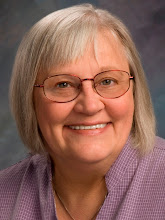I've learned the hard way that when you move from one state to another, you need to find out right away what the deadline is for voter registration. If you care, that is, which I didn't always. But one year I did care, and having come from a state where the voter registration deadline was 20 days before Election Day, I traipsed into the DMV on Day 28, ever so proud that I remembered in plenty of time. But no. My new state's deadline was 29 days before Election Day. I was one day late.
Which brings up this question: do you know your state's voter registration deadline? My guess is you don't know, because a full 84 percent of Americans are unable to accurately identify their state's deadline. It's no wonder; some of the deadlines are unbelievably complex, like Nevada's: "9:00 p.m. on the fifth Saturday before any primary or general election. 9:00 p.m. on the third Saturday before any recall or special election. However, if a recall or special election is held on the same day as a primary or general election, the registration closes at 9:00 p.m. on the fifth Saturday before the day for the elections." (Translation: "Move to another state already; we don't need your vote.")
North Dakota neatly avoids the problem entirely by not requiring voters to register at all. And not surprisingly, it's one of a handful of states that have a 15 percent higher voter turnout rate than the national average, which is an abysmal 36 percent. Those states with the highest voter turnout rates, in addition to North Dakota, are Idaho, Maine, Minnesota, New Hampshire, Wisconsin, and Wyoming, all of which allow same-day voter registration. That's right; in those states you can register to vote on Election Day. Minnesota leads the pack with a whopping 77 percent voter turnout rate.
Early registration deadlines made sense in an era of slower communications. But in an age when my computer can decide in roughly 3 seconds whether I qualify for a credit card, surely the local election board can decide in just a few minutes whether I'm qualified to vote.
This is an issue that impacts partisans and independents alike. But it's especially important to politically active independents for this one reason: when partisan officials make it harder for people to vote rather than easier, that's a form of voter suppression. And ending voter suppression in every form is a high-priority independent voter issue.
The Worst Blogger of 2008
17 years ago




No comments:
Post a Comment